The Couple Sessions

What is a situashionship?
A situationship is a romantic or sexual connection that feels like a relationship but lacks clarity or commitment. It often involves emotional closeness while leaving one or both people unsure where they stand. Over time, this uncertainty can start to affect confidence and self-esteem.

The Shared Account of Goodwill: Why I Always Check the Balance Before We Begin
After more than a decade of couples therapy, I've learned that the most crucial assessment I can make in those first sessions isn't about communication patterns or conflict styles—it's determining whether there's anything left in the couple's shared account of goodwill.

The Trapdoor in Every Relationship
Every relationship has an emotional trapdoor, that sudden drop when a conversation slips into an argument before you’ve even realised what happened. These moments are often triggered by something that touches old wounds, pulling the past into the present with force. You can’t stop the fall once it’s started, but you can learn to recognise when you’re close to the edge and find ways back to repair afterwards.

Healthy Compromise: Nurturing Shared Space Without Losing Yourself
Compromise in a relationship isn't about giving up who you are—it's about nurturing the shared space where love can flourish. When trust and goodwill form the foundation, meeting in the middle feels like an act of caring for your bond rather than losing pieces of yourself. Without this emotional safety, however, compromise can quickly transform into resentment, making it essential to focus on keeping the connection secure enough for both partners to remain whole.

Love as the Act of Seeing Another
Stephen Grosz reminds us that love is not just a feeling, but the act of seeing someone as separate from ourselves. It means stepping outside our own history and habits, letting go of old certainties, and meeting our partner as they truly are in the present. Real intimacy asks us to soften the assumptions shaped by past hurts and discover the living, changing person in front of us today.

How to Express Feelings in a Relationship
Your partner can’t read your mind, no matter how long you’ve been together. When feelings aren’t spoken out loud, they build up and usually come out in unhelpful ways—through irritation, distance, or arguments. Learning how to express feelings in a relationship openly and simply is one of the best ways to stay connected and avoid resentment.

Maybe Baby? When Having a Baby Becomes a Lifestyle Choice
Deciding whether to have a baby often brings couples to a standstill. Beyond personal choice, it’s shaped by cultural pressure and ideals. One may long for family or meaning, while the other fears losing freedom. The key is to look past the yes-or-no and talk about the deeper hopes and fears underneath.

When Emotional and Physical Intimacy Don’t Line Up
Some couples find themselves in a loop where emotional and physical intimacy are tightly linked, but in opposite directions. One partner feels desire only after they’ve experienced emotional closeness, while the other feels emotionally connected only after physical intimacy. This mismatch can lead to frustration and misunderstanding, yet it’s not about right or wrong — it’s about recognising different pathways to connection. When both partners understand this cycle and make small moves towards each other’s needs, they can create a more balanced and mutually satisfying relationship.
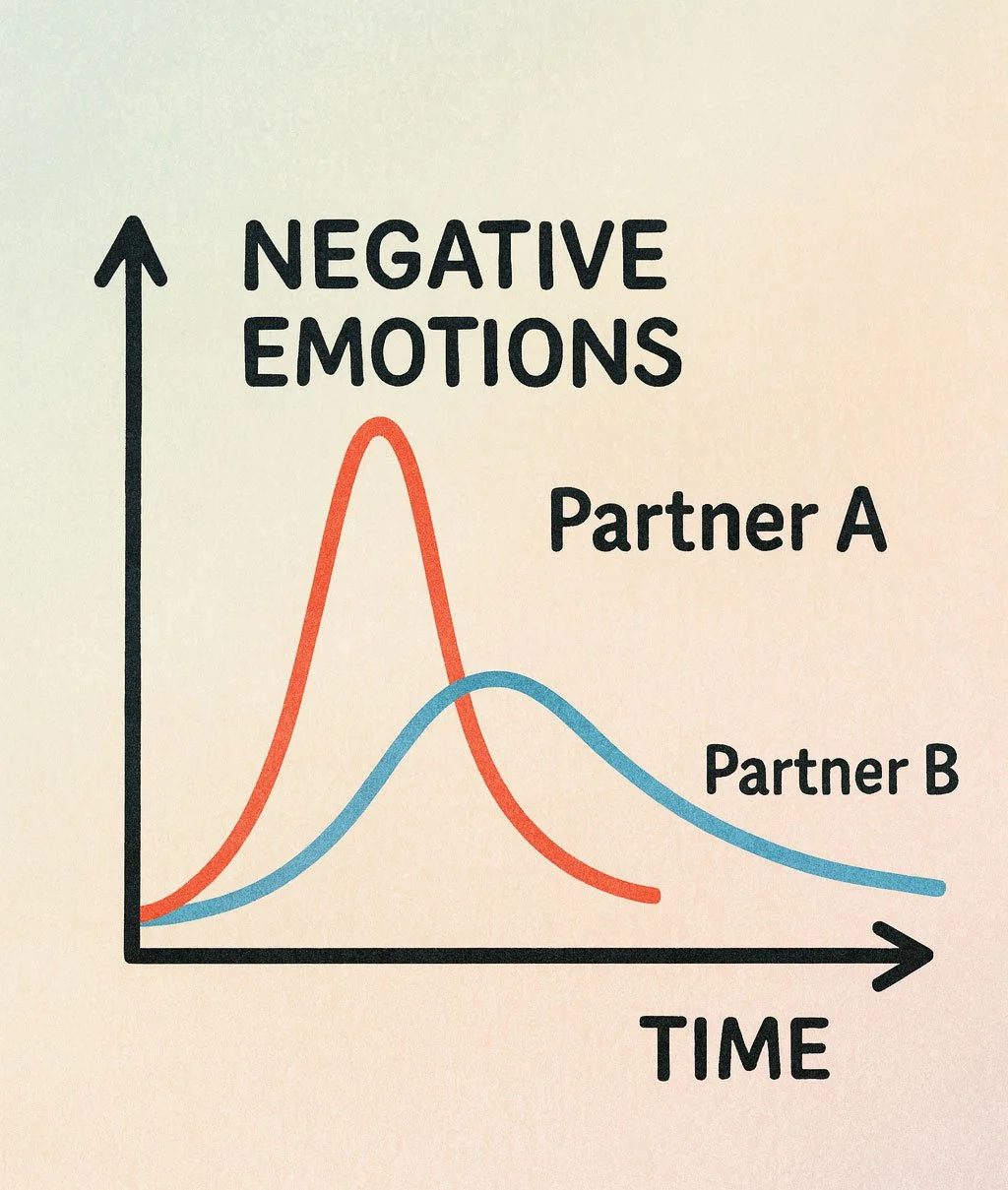
Why Partners Recover from Arguments at Different Speeds
Arguments aren’t just about what’s said in the heat of the moment, they’re also about how each partner moves through conflict afterwards. Some people get upset quickly but calm down just as fast, while others take longer to react yet need more time to recover. These different emotional rhythms are natural but can lead to misunderstandings if not acknowledged. Learning to recognise and respect each other’s pace can reduce tension and help you reconnect more smoothly after disagreements.

What Emily Nagoski Taught Me (and My Clients) About Sex and Desire
Many couples worry something’s wrong when desire fades or feels mismatched. This post shares key ideas from Emily Nagoski—like sexual brakes and accelerators, spontaneous vs responsive desire, and the importance of context—to help couples understand and reconnect with less pressure and more clarity.
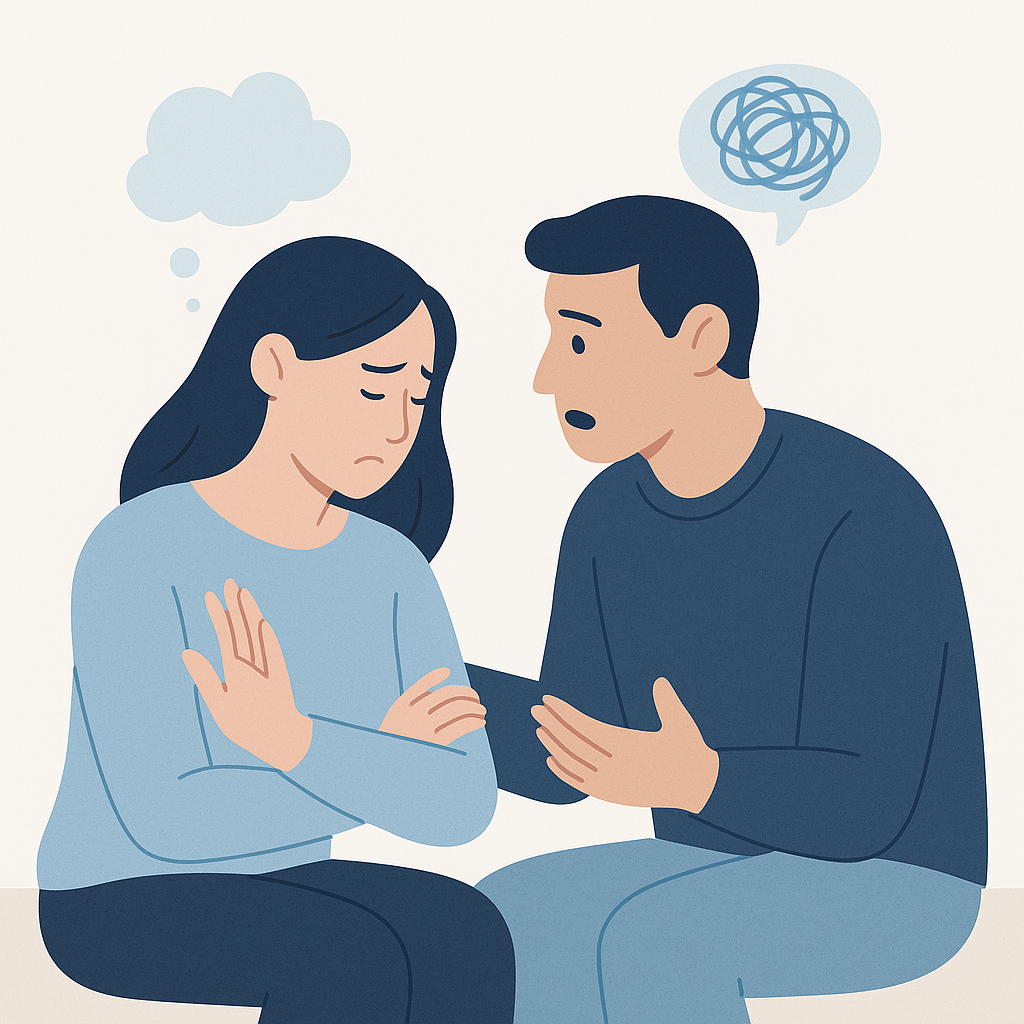
How to Recognise and Break Negative Cycles in Relationships
If you and your partner keep having the same arguments, you may be stuck in a negative cycle—a repeating pattern that leads to conflict and emotional distance. These cycles can feel impossible to break, but understanding them is the first step toward change. In this post, I explain how negative cycles form, what drives them, and how theories like Emotionally Focused Therapy and the Gottman Method can help couples shift out of blame and reactivity. With insight and small adjustments, it’s possible to move from feeling stuck to feeling closer.
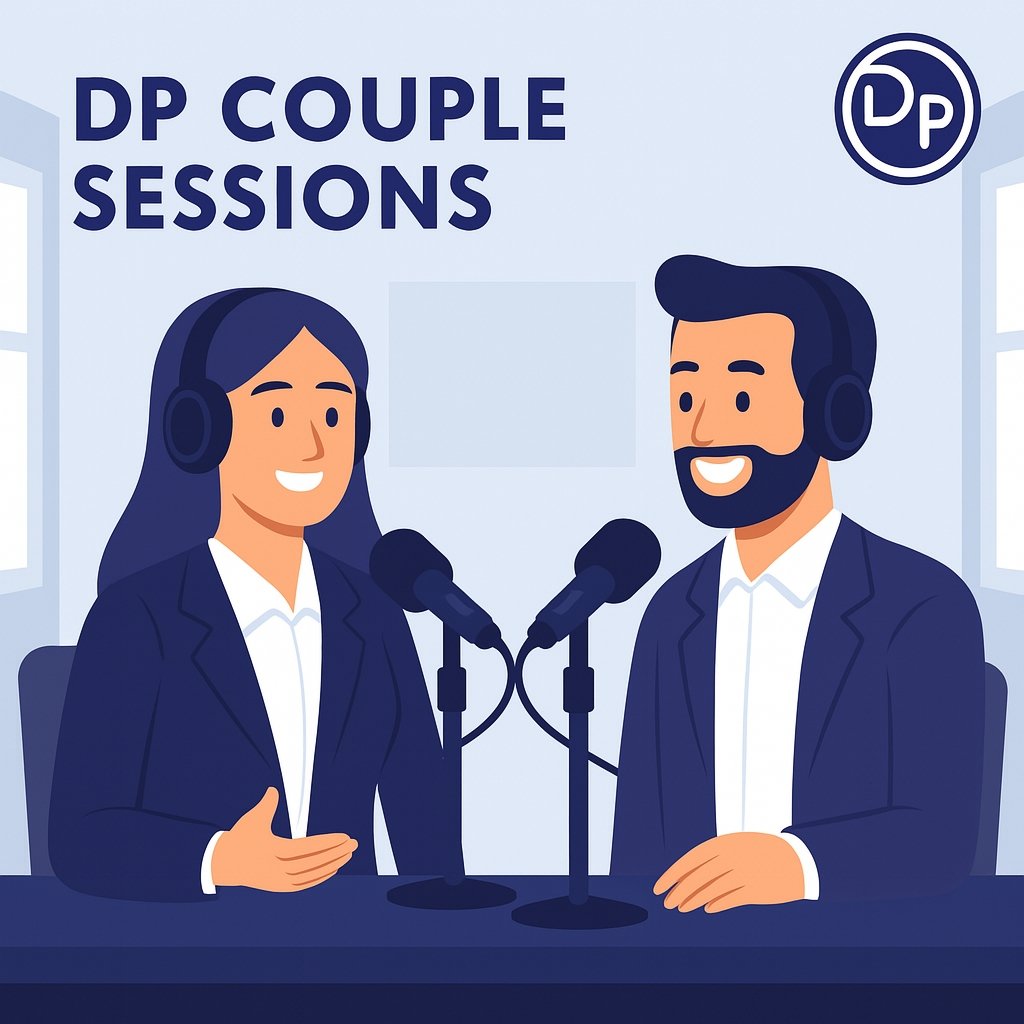
DP Couple Sessions - Ep. 2, Breaking Negative Cycles
If you keep having the same argument with your partner, you're likely caught in a negative cycle—a pattern that leaves you feeling stuck, disconnected, and unheard. In this episode, I’ll explain what these cycles are, why they happen, and how to start breaking them so you can reconnect and communicate with more awareness and less reactivity.
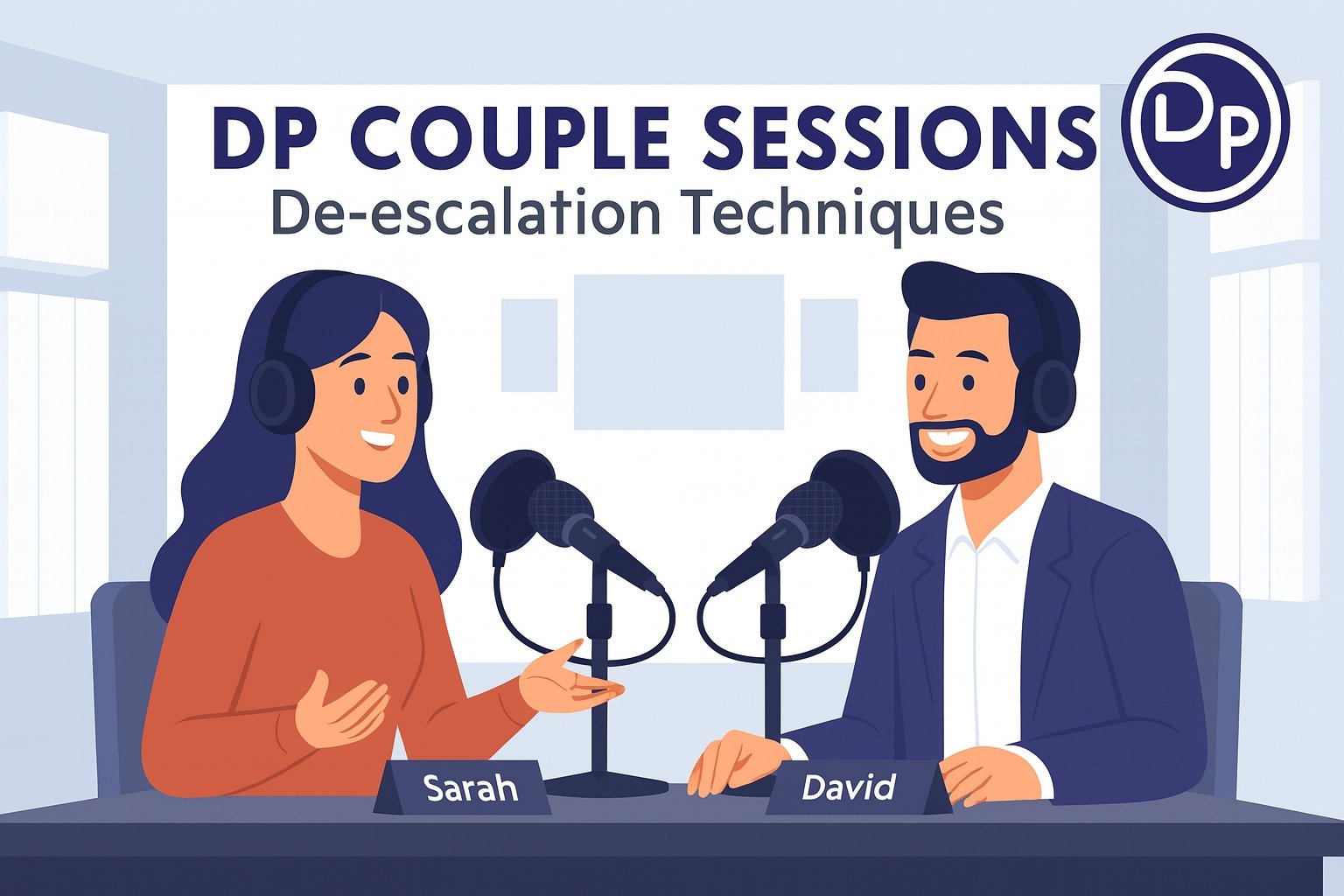
DP Couple Sessions - Ep. 1, De-Escalation Techniques
When arguments heat up and voices rise, relationships suffer. In this essential episode of DP Couple Sessions, we explore the crucial art of de-escalation - learning how to step back from conflict before it damages the foundation of your partnership.

Fight Smarter: How to Break Free from Toxic Argument Patterns in Your Relationship
Tired of going in circles with your partner over the same arguments? This post breaks down why everyday conflicts, like being late, can spiral into emotional battles — and how to stop the cycle. Drawing on insights from Esther Perel, we explore the traps of confirmation bias, double standards, and “always/never” thinking, offering practical tools to help you fight smarter, not harder. If you’re ready to shift from blame to connection and make your relationship feel less like a battlefield, this one’s for you.

Fixing negative patterns
What does it really mean to heal? In this soulful conversation, Alain de Botton unpacks the roots of our inner critical voice, the struggle to connect with emotions, and why we get stuck in difficult relationships. A reflective and practical look at how healing helps us show up more fully—for ourselves and for others.

It’s either simple, or it’s complicated
It’s either simple, or it is complicated. Some relationships need small adjustments, while others require deeper healing. The key is recognising what’s needed and committing to the process.

New Year, New Us:
A new year offers couples a fresh start, but rigid resolutions can quickly lead to frustration. Setting intentions instead encourages mindfulness, flexibility, and mutual support, making it easier to stay motivated and grow together without unnecessary pressure.
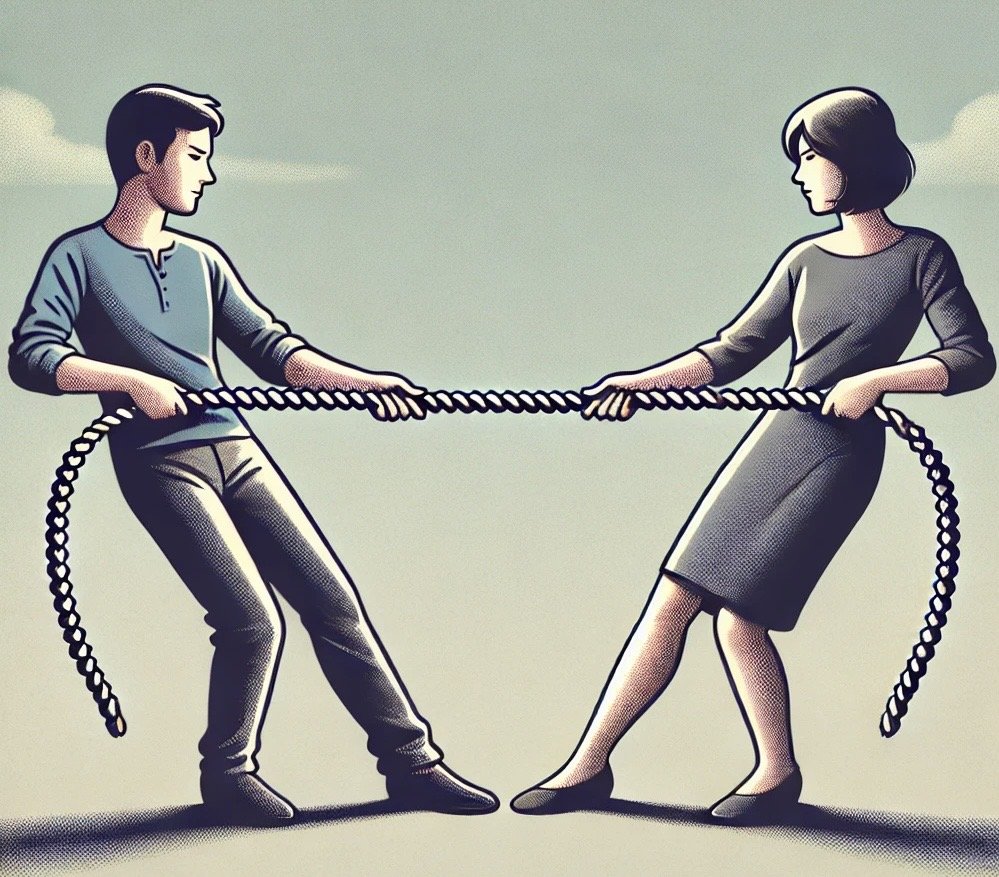
Techniques to prevent arguments from escalating
In this post, we explore twelve essential strategies for preventing conflict escalation in relationships. From setting boundaries to practicing active listening, these techniques are designed to promote understanding and maintain a calm and respectful connection.
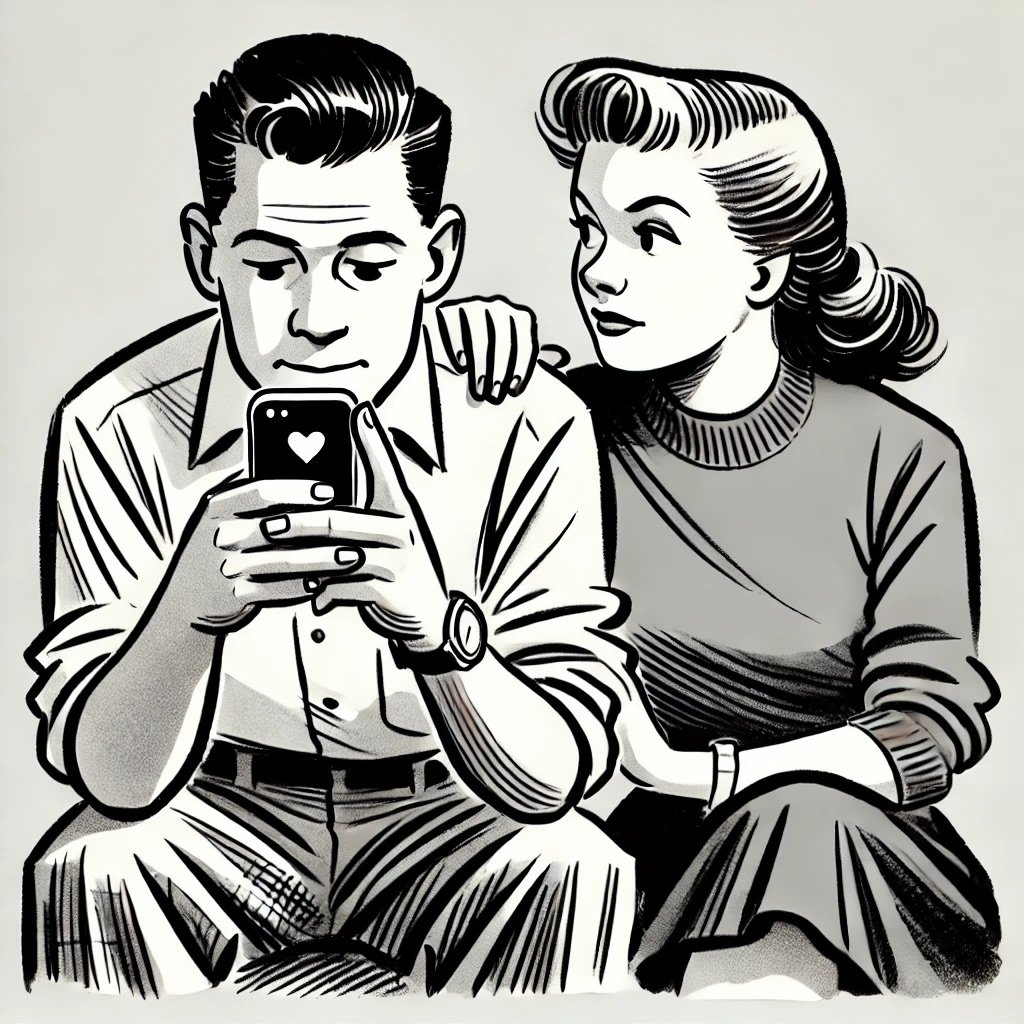
The Subtle Art of Micro-Cheating: Recognising It and What to Do About It
Micro-cheating may seem harmless, but it's the subtle actions and intentions that can erode trust in a relationship. In this post, I explore the signs and implications of micro-cheating and how to navigate these gray areas in a partnership.

The Hidden Dangers of Emotional Affairs: Insights from Leading Relationship therapists
Emotional affairs can be just as devastating to a relationship as physical infidelity. Leading therapists like Esther Perel, Dr. John Gottman, and Dr. Shirley Glass provide valuable insights into the complexities and consequences of emotional infidelity.
